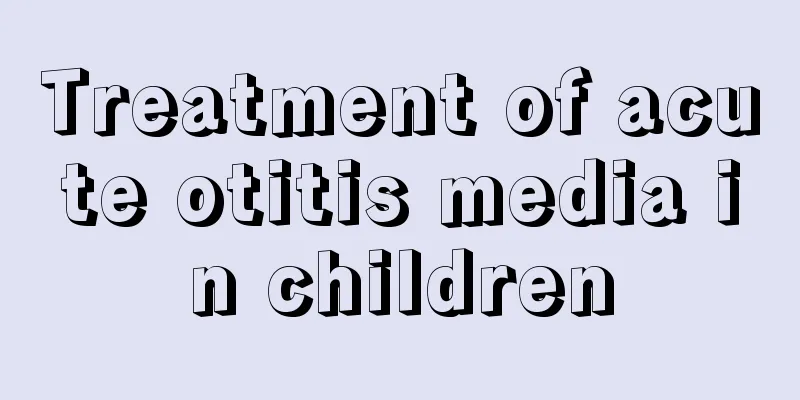How long is a good nap for children?

|
Many parents do not pay attention to their children's nap time. Some families do not let their children take naps, but some families let their children sleep according to their children's requirements when they wake up. In fact, there are regulations on the length of naps, and the length of naps is also a way to determine whether the body is healthy. If the time is too long, it will make the head drowsy. Some children take too little nap time, so the brain cannot get a better rest. So how long should children take naps? Naps often continue until children are 3 years old, and then children gradually lose the habit of taking naps. If your child's nap is suddenly cancelled, he or she will feel sleepy in the evening and have difficulty falling asleep at night. If the child is under 3 years old, you should cultivate the habit of taking a nap for the child; if the child is over 3 years old, go to bed earlier. If the nap habit is maintained as the child grows older, the time the child spends in bed at night will become shorter and shorter. Canceling the nap habit can make children go to bed earlier at night and fall asleep as soon as possible after going to bed. Children often start their naps at the wrong time. If the morning nap time is too short and the child starts taking a nap before 12 noon, his energy will not be restored and he will start to feel sleepy in the evening. One mother described her child as "French fries" because he became very fragile in the evening. By 9 months old, an early nap may result in a 3rd nap, which delays bedtime. If your child starts his nap after 2 p.m., it can easily get confused with an earlier bedtime in the evening. Sometimes, naps conflict with your child's activities or the activities of his or her older siblings. In this case, either hire a babysitter to help, let the baby take a nap on the way to his or her older sibling's activities, or reduce some of the preschool activities arranged for the baby. If the child's nap is short or he does not take a nap, the bedtime should be advanced. Sending children to daycare often means that naps are not guaranteed. Maybe the daycare center scheduled the nap at the wrong time, the nap room was too noisy, the caregiver didn't have enough energy to get the baby to sleep, or the children kept crying. In day care, children's morning naps may end quickly because they got enough sleep the night before. Some families may have no choice but to send their children to daycare, so although it may be difficult for these families, they should try to make sure their children go to bed early at night. Don't let your child go to bed too early for a nap. There should be a time limit. It is best to take a nap half an hour after a meal. If the child's nap is too long, it will be easy for the child to have trouble falling asleep at night. If the child makes noise at night, it will bother the adults, which has a great impact on the adults, seriously affecting the quality of work, and will also cause the children to not get enough rest, so it must be controlled well. |
<<: Can children use fitness circles to lose weight?
>>: Reasons why children cry during nap
Recommend
What is the sleep time for primary school students?
As society continues to develop, taking a nap can...
What to do if mycoplasma infection occurs in infants
Some babies have problems with their bodies, so t...
Why does the child's ears run?
Under normal circumstances, the inside of our ear...
What anti-inflammatory medicine should a 7-year-old boy take?
As we all know, the human reproductive organ need...
Height of a 4-year-old child
Every parent pays special attention to the develo...
What to do if your six-month-old baby has asymmetrical leg lines
After the child comes out of the mother's bod...
What to do if children have vulvitis?
Many people are suffering from vulvitis. The main...
What is the best age for circumcision?
Children are the apple of parents' eyes. Pare...
How to get rid of bloodshot eyes in a four-year-old baby?
The little baby at home is always on the minds of...
What causes sleep apnea in children?
Children's sleep problems have always been a ...
Baby's milk is leaking from the nostrils
Many babies who have just been born are breastfed...
What medicines can be used to treat babies bitten by mites?
Everyone knows that mites have a great impact on ...
What to do if your baby has a runny nose and cough
If the baby has a runny nose and cough, parents a...
What should I do if my baby has anal bleeding?
Many parents have found that their babies have an...
Why does my child have bad breath in the morning?
When babies wake up in the morning, they have bad...









